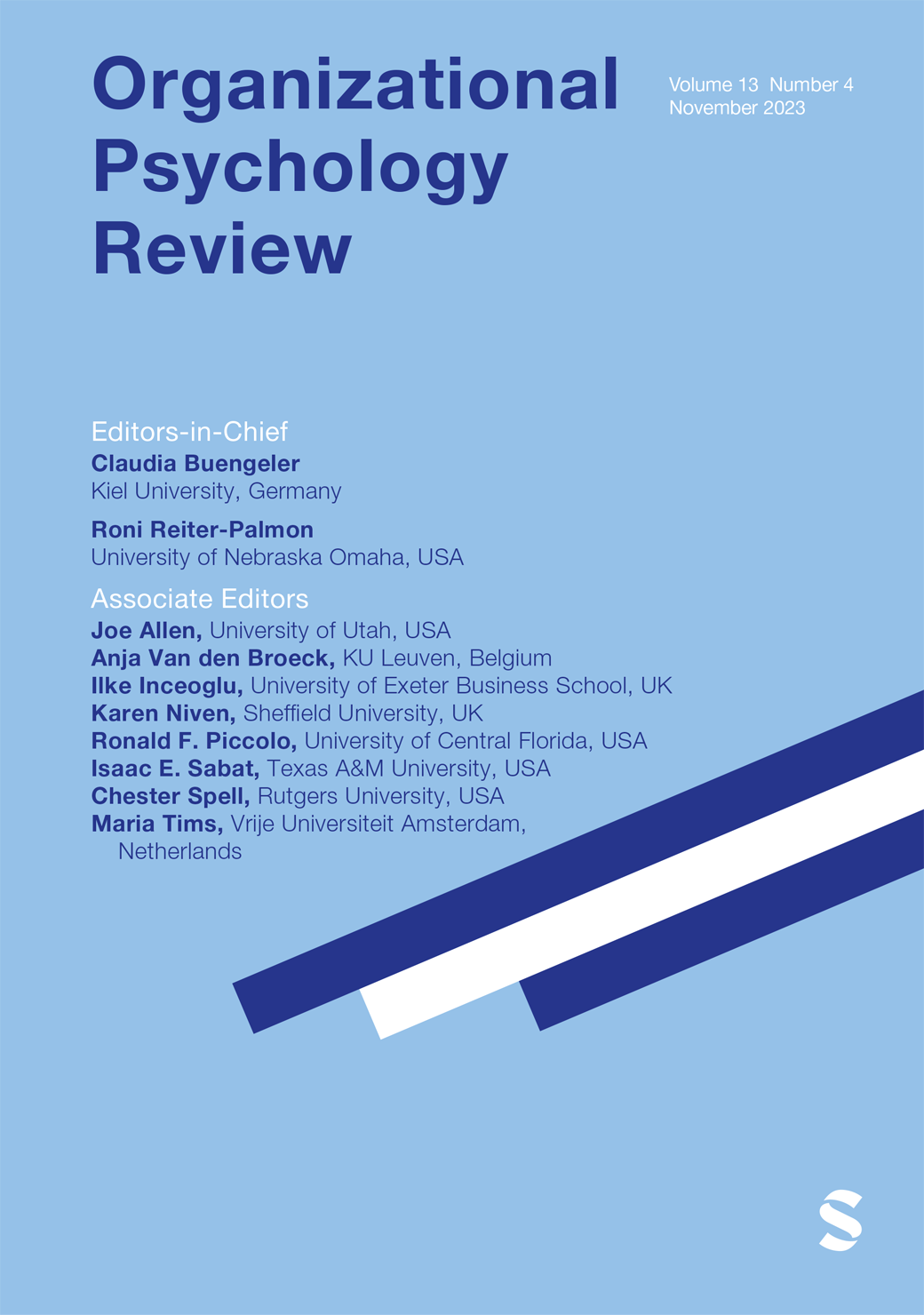作为决策咨询框架的正义理论
IF 7.1
1区 心理学
Q2 MANAGEMENT
引用次数: 0
摘要
在本文中,我们响应布洛克纳和博博科尔的号召,利用正义研究来解决重大社会问题。从政策研究和自由哲学领域的研究出发,我们提出了三个主要论点:a) 关键性社会问题是 "邪恶的问题",它们集高决策风险、高参与者多样性和高不确定性于一身,因此需要多个学科的专业知识同时协调进行有效干预;b) 要解决此类影响更为深远的问题,需要拓宽 "公正 "的定义;c) 在政策领域工作的人已经意识到并积极应用布罗克纳和博博科尔概述的许多公正原则。最后,我们将布罗克纳和博博科尔以证据为基础的见解(以及我们的扩展)转化为一个咨询框架,政策制定者可以据此审核他们的进展、决策和行动。我们认为,正是通过这种对公正原则的应用,才能管理不确定性,达成持久协议,实现积极的社会变革。本文章由计算机程序翻译,如有差异,请以英文原文为准。
Justice theory as a framework for policy-making consultation
In this paper, we respond to the call by Brockner and Bobocel for leveraging justice research to address critical social issues. Pulling from research within the areas of policy studies and liberal philosophy, we make three major arguments: a) Critical social issues are “wicked problems,” which combine high decision stakes, high diversity of actors, and high uncertainty, and therefore require the simultaneous and coordinated expertise of multiple disciplines for effective intervention; b) to tackle more far-reaching issues such as these requires a broadening of what is considered “just;” and c) those working within the policy realm are aware of and actively applying many of the justice principles outlined by Brockner and Bobocel. We conclude by converting Brockner and Bobocel's evidence-based insights (along with our extensions) into a consultative framework with which policy makers can audit their progress, decisions, and actions. We argue that it is through this sort of application of justice principles that uncertainty can be managed, durable agreements can be reached, and positive social change can be achieved.
求助全文
通过发布文献求助,成功后即可免费获取论文全文。
去求助
来源期刊

Organizational Psychology Review
Multiple-
CiteScore
10.00
自引率
1.60%
发文量
25
期刊介绍:
Organizational Psychology Review is a quarterly, peer-reviewed scholarly journal published by SAGE in partnership with the European Association of Work and Organizational Psychology. Organizational Psychology Review’s unique aim is to publish original conceptual work and meta-analyses in the field of organizational psychology (broadly defined to include applied psychology, industrial psychology, occupational psychology, organizational behavior, personnel psychology, and work psychology).Articles accepted for publication in Organizational Psychology Review will have the potential to have a major impact on research and practice in organizational psychology. They will offer analyses worth citing, worth following up on in primary research, and worth considering as a basis for applied managerial practice. As such, these should be contributions that move beyond straight forward reviews of the existing literature by developing new theory and insights. At the same time, however, they should be well-grounded in the state of the art and the empirical knowledge base, providing a good mix of a firm empirical and theoretical basis and exciting new ideas.
 求助内容:
求助内容: 应助结果提醒方式:
应助结果提醒方式:


